When I was compiling my post of English-language films that might appeal to a lover of old Hindi cinema, I needed to check something about Ben-Hur (which was on my list) on IMDB—and I discovered something I hadn’t realized. That Ben-Hur was being remade. In fact, it was due for release less than a fortnight after my post.
Now, if that isn’t coincidence, serendipity, fate, call it what you will—I don’t know what is. So I made up my mind: this remake had to be watched, and the original (no, I’m not counting the earlier, silent version of the film, but the record-breaking, many-Oscar winning one, directed by William Wyler). Comparisons, of course, would follow.
I will get on to what I thought of the new Ben-Hur later on in this post, but let’s begin with what the old Ben-Hur film is all about.
Set in Judea during Roman rule, this starts with a few minutes devoted to the Nativity, the birth of Christ. It shifts, years later, to when Jesus is grown up, and is turning out to be less interested in carpentry than in matters of the soul…
We then move on to the central figure of this story, Judah Ben-Hur (Charlton Heston), a Jewish prince and the wealthiest man in Jerusalem. We first see Ben-Hur when he comes to meet the newly-arrived Roman tribune, Messala (Stephen Boyd): Messala and Ben-Hur have been boyhood friends, close enough to have been brothers, and you can see that mutual affection in their reunion. Messala has been gone several years, serving in the Roman army while Judah has been here in Jerusalem, consolidating his position and wealth.
These two markers of these men’s lives come into conflict within the next few minutes. Messala, who is getting ready to welcome the new governor of Judea, asks Judah about the pulse of the city, and Judah is frank in his answer: the Jews hate the Romans, of course they would. Will Judah then, asks Messala, talk to the people, use his influence to convince them to allow the governor’s arrival in Jerusalem to be a peaceful affair? Judah agrees, though it’s obvious that their respective positions—Roman/conqueror and Jew/conquered—have begun to make themselves felt.
This tension is dissipated somewhat the next evening, when Messala comes to Judah’s home to dine with Judah’s sister Tirzah (Cathy O’Donnell), who has long been infatuated with Messala (who knows it) and Judah’s mother (Martha Scott). Messala has brought an ornament for Tirzah, and it’s obvious from her pleasure that he is as fascinating to her as ever. His affection for her seems more brotherly than anything.
When Messala and Ben-Hur draw aside to discuss that earlier matter, however, the tension flares up. Judah admits that he has spoken to the more prominent people of the city, and that there will be no trouble when the governor arrives—but, when Messala presses Ben-Hur to give him the names of likely rebels, Judah refuses. He will not betray his people, even for the sake of his friend. Messala is so angry that he leaves without dining with the family.
The next day, Judah receives another visitor: his steward Simonides (Sam Jaffe) arrives from Antioch, bringing with him (as he always does, so Judah remarks) news of an increase in Judah’s wealth. This time, Simonides has brought with him his daughter Esther (Haya Harareet), so that she can ask Judah for permission to get married (this is needed because, since Esther is the daughter of Simonides, a slave, she too is Judah’s slave). The man Esther is to marry, though a near-stranger to her, is a free man and will buy her freedom too, Simonides assures Judah.
Judah, however, promises that Esther’s freedom will be his wedding gift to her. Both she and her father are suitably touched…
… and, later that evening, in a chance meeting on the terrace of the house, Judah and Esther end up confessing their love for each other, even if only very obliquely and then in a hurried kiss, before she breaks away from him.
Which is perhaps just as well, because the next day, all hell breaks loose. The new governor of Jerusalem enters town amid a great procession, with Messala riding ahead. Judah and Tirzah go up on the roof of their house to watch.
Tirzah, leaning down to get a better look, does not realize that some of the tiles on the parapet are loose. A couple of tiles go plummeting down, hitting the governor, and before they know it, Romans are thundering into the house.
Judah, his mother and Tirzah are arrested. Even though he tries to escape, all Judah manages is a short, strained conversation with Messala (who coldly refuses to help; Judah, he points out, didn’t help him, when he begged for help). Messala refuses, too, to say where Tirzah and her mother are, but he uses them as a means to push Judah: if Judah tries to escape, or to harm Messala, they will be put to death.
Judah is, without a trial, hurriedly sent off to Tyre. En route, when the ragged, bloodied and thirsty group of chained men stop at Nazareth, the Roman in charge allows the local villagers to give water to the prisoners only after the Romans and their horses have drunk their fill. And, even then, he orders that nobody give any water to Ben-Hur. Judah, desperate, sinks to the ground, muttering an anguished plea to God. And one man (whose face we never see) comes from the little carpenter’s workshop nearby, raising Judah up and giving him water.
Three years later, we catch up with Judah again. The Roman Consul Quintus Arrius (Jack Hawkins) is travelling in his flagship, and Judah is one of the two hundred galley slaves who labour at the oars of this ship. Arrius, going below decks for an inspection, is struck by Ben-Hur’s unafraid demeanour, so different from the cowering hopelessness of the others. Arrius sits down, and literally puts the rowers through their paces: battle speed, attack speed, ramming speed. By the time he lets them rest, most of the rowers are collapsing—except for Ben-Hur.
Arrius later summons Ben-Hur to his cabin, and asks how he came to be on the galley. After hearing him out (though not, as is apparent to Ben-Hur himself, with any conviction), Arrius makes a proposition. As one of his leisure-time activities in Rome, Arrius is a trader—of gladiators and charioteers. He sees the making of one in Ben-Hur; if Ben-Hur agrees, he can become one of Arrius’s men. Ben-Hur, however, has his mind made up: when and if he gets free, he must return to Jerusalem to find his mother and sister.
Fate, however, has something else lined up. Soon after, the Roman fleet goes into battle, and the rowers are chained to their posts, but at Arrius’s orders, Ben-Hur isn’t chained. During the sea battle that ensues, the ship is sunk; Ben-Hur, after managing to free some of his fellow rowers, goes on deck—just in time to find Arrius going overboard, felled by the enemy. Ben-Hur dives in, rescues the Roman and hauls him up onto some flotsam, and ends up having to keep a depressed Arrius from trying to commit suicide.
When they are finally picked up by a Roman ship, it is to good news: although Arrius’s fleet sank, the enemy was defeated. So this has a been a victory for Arrius. Arrius, in his moment of joy, does not forget Ben-Hur: he hands over the goblet of water, held out for Arrius to drink, to Ben-Hur first.
And it is Ben-Hur who rides in Arrius’s chariot when the Consul arrives in Rome to receive the baton of victory from Caesar. Caesar is curious about this young man; when Arrius reveals who he is, Caesar agrees that it is hardly likely that the same man who saved a Roman Consul should have tried to assassinate the Roman governor of Jerusalem.
Shortly after, the case being presented, the Roman Senate comes to a decision: Ben-Hur is cleared of the charges pressed against him, and is handed over to Arrius as a slave, for Arrius to do as he pleases…
Sometime later, we catch up with Ben-Hur and Arrius at a grand party. Here, in front of all the assembled crowd, Arrius announces that Ben-Hur, who has become his best charioteer, is now also his son. The legalities for the adoption have been completed, so from this day onwards, this young man is heir to all of Arrius’s titles, wealth and property. Ben-Hur, now Quintus Arrius the Younger, is deeply affected and grateful. But, as his adopted father too realizes, Ben-Hur will not rest on his laurels.
Even as the newly-appointed Governor of Judea, Pontius Pilate (Frank Thring) confides in Arrius that he is off to Judea, Ben-Hur too is getting ready to go back. To find his mother and Tirzah, to have his revenge.
Ben-Hur won a record eleven Oscars (not equalled until Titanic in 1997). It is widely regarded as one of the best period films ever made, and no best of sword-and-sandals list is ever likely to not list this one.
Some trivia:
(And Ben-Hur being the epic it is, there’s a lot of interesting trivia).
1. Among the actors considered for the lead role were Marlon Brando, Vittorio Gassmann, Tony Curtis, Paul Newman, Kirk Douglas, Burt Lancaster and Stewart Granger. Charlton Heston had been considered for the role of Messala.
2. The role of Jesus Christ (whose face is never shown in the film) was played by the singer Claude Heater. Interestingly, the reason for his face not being shown (or his voice heard) lies in a British law which ruled that Jesus’s face and voice could not appear in any film in which Jesus was not the main character.
3. The spectacular chariot race took five weeks to film. A special onsite infirmary was set up to handle injuries, but this was fortunately mostly only used for sunburns and minor scrapes. Stephen Boyd, incidentally, was one who suffered a bit during the filming: the reins of the chariots caused severe blisters on his hands, and the brown contact lenses he had to wear caused so much irritation that his scenes had to be spaced out to allow him time to rest his eyes in between.
4. Ben-Hur is one of only four MGM films in which the MGM lion does not roar at the beginning.
What I liked about this film:
The story, which is a fine mix of a lot of interesting elements and emotions. Since I am a history buff, the very fact that it Ben-Hur is set in one of the most happening parts of the world in the first forty years of the first millennium CE is enough to make it of interest to me; on top of that, there’s the age-old theme of a wronged man coming back from the dead to have his revenge. There’s romance, pathos, adventure, bromance, and faith thrown in. A heady brew, and mixed well. Stirring.
The spectacle, especially that magnificent chariot race, which is even more awe-inspiring when you realize that this was done in the days well before CGI. (Incidentally, that sequence is so memorable that my mother, when I phoned to tell her I’d gone to see the new Ben-Hur, asked, “Did they have the chariot race? How was it? Was it as good as the original?”)
What I didn’t like:
The length. True, it covers a lot of ground, and a lot of themes and plot elements, but still. Clocking in at just under three and a half hours, Ben-Hur is long (it even has an intermission, like a Hindi film). Some of it, I think, could have been reduced: the length of time allocated to the chariot race, for instance. Or the time in the galley, or just some of those long and pregnant pauses that stretch out a trifle too long.
Comparisons, comparisons:
[Spoilers ahead]
Ben-Hur was based on a novel of the same name, written by a Civil War general, Lew Wallace. The 1959 adaptation is a fairly good adaptation of the book (the one major element it leaves out, and which—I think—doesn’t too much for the book in any case, is a fleeting attraction between Ben-Hur and the beautiful daughter of the Arab sheikh who becomes his backer in the latter half of the story). Another important divergence from the book is in the way Messala’s eventual fate is described: the film takes a very different route from the book.
And how does the 2016 version of Ben-Hur, starring Jack Huston as Ben-Hur and Toby Kebbell as Messala, compare?
None too well. Huston is (in my opinion) far better-looking than Charlton Heston, but Heston is the better actor and gets better scenes, better lines. And the chariot race, digitally enhanced and very real, is excellent.
But the rest is an obviously rushed, often blink-and-you-miss-it retelling of the Ben-Hur story. For example, Esther and Ben-Hur are already deeply in love when the story begins, and get married even before the mishap occurs that splits the family apart. Also, instead of Ben-Hur rescuing a Roman Consul and ending up as his adopted son, the entire Quintus Arrius angle is junked, leaving a Ben-Hur who has survived the sinking of the galley to wash up on a store where he’s rescued by an African trader in horses…

What this does is, of course, reduce time spent on character development; it also makes the film a little less convincing. A Ben-Hur who is now a Roman citizen (and no less than the son of the Consul himself) has clout in Jerusalem; clout enough to have Romans heed him, fear him enough to go searching in a long-forgotten prison cell because of him. A Ben-Hur who has crept back into Jerusalem to race horses in the circus? He isn’t merely powerless, he is probably (I am not familiar with ancient Roman law) still a fugitive. But the film seems to forget about that.
Basically, I got the distinct impression that the 2016 Ben-Hur is geared to appeal to a 21st century audience with a short attention span and a love for action movies. True, as some people point out, the end of the film is more indicative of the message of forgiveness that marks Christ’s teachings as well as Lew Wallace’s novel: here, instead of the Messala who dies in the 1959 version, is a Messala who (though one of his legs has been amputated below the knee) is otherwise alive and well, and so reconciled to the family of Hur that he is obviously on his way to even marrying Tirzah.
Sadly, the road to that forgiveness is so hurried, that the end reconciliation, so very joyous and all-forgiving, looks horribly unconvincing.
If you don’t have the time (or the inclination) to read the book, and cannot spare three and a half hours to watch the 1959 film, you may perhaps watch the 2016 remake of Ben-Hur. I could not find any other reason to really recommend this film.

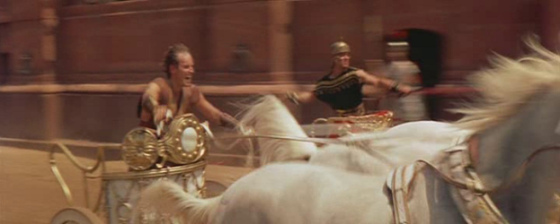







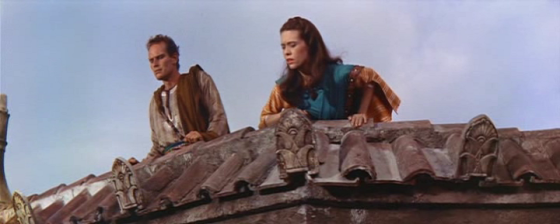


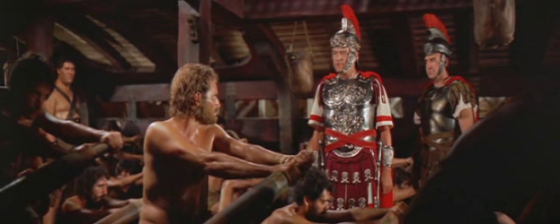
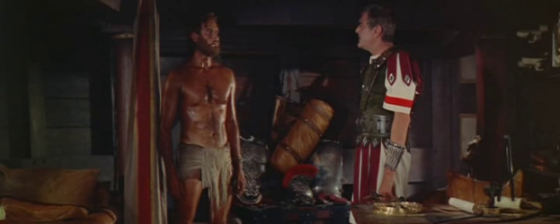
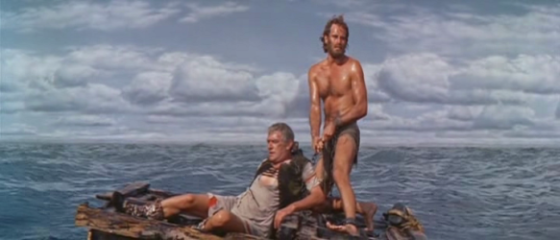




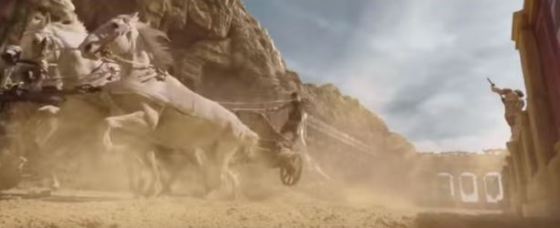
Wonderful review Madhu didi! I loved every bit of it. In spite of the mistakes that inevitably do creep into epic movies, they are so enjoyable chiefly because they manage to draw our attention and keep us hooked for three hours or so.
A note on the 2016 Ben Hur, didi. Though I haven’t seen it, I can pretty much guess how that movie will be: horrible. Why? Because modern day directors do not understand what a film is in the first place, didi. It is an ‘organic’ flow of scenes, and by organic I mean a natural, spontaneous progression from one incident to another. Even if the film follows a non-linear narrative, this flow should always be maintained.
But now? Films are merely a mashup of scenes, being presented as a product to a consumerist audience. Supposedly, according to modern day norms, a scene is considered ‘boring’ if it lasts for more than 20 seconds. Ridiculous didi! What is even more saddening is that Bollywood, with all its money and a talented pool of actors, is happily aping this trend without the slightest qualm. In fact didi, watching a modern day movie isn’t even easy on the eye, chiefly because this rapid switching of camera angles is irritating.
But wonderful review of a wonderful movie didi. Thanks a lot.
LikeLike
” Supposedly, according to modern day norms, a scene is considered ‘boring’ if it lasts for more than 20 seconds. ”
20 seconds? Good Lord! I hadn’t known that. But, looking back at the films I’ve watched over the past few years, I can well believe that. And Ben-Hur, sadly, is a stellar example of that theory. The quick cuts, the things that are barely shown before we move on – it’s all geared towards that very fast, very visual not-storytelling (that’s the only way I can describe it; I think some of the best stories are told – or shown – in a leisurely fashion).
But the original Ben-Hur is good. Better than good. Glad you liked the review, Rahul! Thank you.
LikeLiked by 1 person
Today’s critics (especially the ones from The Times of India) Madhu didi never give director a chance only. If any director is taking his time to tell a story, they will immediately pounce on him and say ‘ the movie is too slow’ or ‘the movie drags a bit’. Its very sad didi.
LikeLike
True. I think, in recent years, one of the few long Hollywood films that has received rave reviews from critics despite its length was Inception – and that had a very complex plot, so it worked. A film with a straightforward plot (as Ben-Hur‘s is) would almost certainly get trashed by most Indian critics without a second thought.
LikeLiked by 1 person
The ones at Mint Lounge are good didi… Especially Uday Bhatia…
LikeLike
I shall let Uday know. :-) He will be pleased.
LikeLiked by 1 person
Hehe thanks didi! :))
LikeLike
The 1959 Ben Hur was very gripping. I had no idea it was taken from a book.
I am not sure if I will get time to watch the new one. Let us see.
Very interesting post, Madhu.
LikeLike
Yes, my mother has a copy of the novel. I’ve read it a couple of times, and the 1959 movie is a pretty good adaptation. I remember first reading the book after I’d already seen the movie, and going into it thinking the book would (like most) be far better than the movie. But they did a good job with that one.
LikeLiked by 1 person
I can still remember the pulsing excitement of the chariot race, and you brought it back so vividly, Madhu. It makes me want to watch this one again, though as you say, at three and a half hours, I’m wondering where I’m going to get the time!
But thank you for bringing the movie alive.
LikeLike
“at three and a half hours, I’m wondering where I’m going to get the time!”
Yes. You could easily fit in two shorter old movies in that much time. ;-) You could even watch The Woman in Question twice over.
Glad you liked the review, Anu!
LikeLike
I watched Ben-Hur nearly twenty years back, but I remember being totally enthralled by it. A very gripping story and I didn’t feel at that time, that it was long. I wonder, if I’d still have the patience for it. Heston not being a favourite of mine now, doesn’t help matters much.
BTW the documentary, The Celluoid Closet has good insights to offer on the filming of the movie.
Nice post, Madhu. Thank you.
LikeLike
I am too short on time to watch The Celluloid Closet just now, Harvey, but I’m making a note of this, so that I don’t forget! Sounds interesting, thanks. IMDB’s trivia section for the film has loads of stuff, besides the ones I’ve mentioned.
I have watched Ben-Hur several times, and when I was younger, I didn’t think it was too long. In fact, the first time I watched it (without knowing what the story was), I was on the edge of my seat, wondering what would happen next. Now, possibly because I do know what is going to happen next, I tend to get a little impatient. Not so impatient, though, that I would happily watch the 2016 Ben-Hur instead! :-)
LikeLike
A remarkable review of a remarkable movie!
LikeLike
Thank you so much!
LikeLiked by 1 person
I’ve been thinking for a while of having my 11 year-old watch “Ben Hur” but that 3.5 hours run time kinda makes me quake at the epic eye-roll I would get from the offspring.:-D Perhaps, i’ll just have him read your review – your describe the film so vividly.
LikeLike
Yes, I have a feeling that the mere knowledge that this is three and a half hours long would put off the present generation! Thank you, Shalini, for liking my review. :-)
LikeLike
Madhu,
Though I have seen the film a number of times, it was nice to have a recap. I would happily see it again, though I am not excited by the 2016 version from what you describe. I guess it is impossible to recreate a classic. I had the same feeling on the remake of Psycho or Umrao Jaan (though I must say there have been exceptions, such as the Hollywood The Man Who Knew Too Much compared to its earlier British version).
It is unfair that the film’s sole claim to fame in public consciousness is the chariot race. The film is much more than that as you so rightly describe. As an aside, the race was so savage, that a modern film would have to display a disclaimer that “The horses were not subjected to any cruelty during filming of the scene.”
AK
LikeLike
“As an aside, the race was so savage, that a modern film would have to display a disclaimer that “The horses were not subjected to any cruelty during filming of the scene.”
That is just what I was thinking when I saw it! Interestingly, one piece of trivia I came across was that Stephen Boyd actually had to tumble to the ground in that last bit of action, because they were just not being able to pull it off convincingly with a dummy. So he did get injured, a bit.
I haven’t seen the earlier version of The Man Who Knew Too Much. Was it made with the same name as the Hitchcock film? Another film, I think, where the remake outshone the original was The Mark of Zorro.
I think the problem with trying to remake something of the calibre of Ben-Hur (or, closer home, Sholay, Umrao Jaan, Devdas, etc) is that the original has reached a stature that will need a lot of intelligent work to be surpassed. Merely ‘modernizing’ the film does not work – Ben-Hur is a sad example of that.
BTW, another remake is coming soon. I was outside DT Cinema in Saket yesterday, and noticed a ‘Coming Soon’ poster for a new The Magnificent Seven’. I have little hope.
LikeLike
Madhu,
That was also made by Hitchcock in 1934 under the same name during his Britain days. I first came to know of the film when I mistakenly bought its DVD thinking it to be the 1956 classic starring James Stewart and Doris Day.Later I read that many critics rate the earlier version superior, yet I have not been able to finish the film. It lacks the smooth flow, the tension and the dramatic climax of the later film.
I think it is best not to go anywhere near a remake of a classic, unless you hear something spectacular about it. Bhansali’s Devdas, besides butchering the story, fails to give the feel of the period which Bimal Roy captured so beautifully.
LikeLike
Thanks. I am now tempted to try and get hold of the early The Man who Knew Too Much and watch it, if only to compare it with the later version – which, too, I haven’t watched for many years.
Bhansali’s Devdas was a travesty. I found it hard to sit through that one. All show, and little substance.
LikeLike
Here I come after a long time. Yes there were things that kept me busy, but there was also some problem with my net connection. Anyway, Ben-Hur, Ten Commandments, Sound of Music bring back memories of my childhood. When Ben-Hur and Ten Commandments released in India, I was very small, I therefore had no memory. Thankfully my growing up days were the days when films used to be re-released unlike now. If you miss a film then you will never be able to see the film on the big screen.
Once in an interview Charlton Heston had observed that it was impossible for filmmakers to afford to make such a film today. Of course that today was when he was alive, now it would be more expensive. It took about six months to shoot the chariot race scene, I think that probably included the erection of the set as well and what you see is just 15 minutes on screen. Nowadays filmmakers have no choice but to resort to CGI, however nothing like the real thing, I have noticed that chroma key usually results in loss of perspective. The fun is lost but cannot blame filmmakers this way it is cheaper.
LikeLike
Yes, I think the time quoted for the shooting of the chariot race probably included the erection of the set, since (as I’ve mentioned in the post), the actual time taken to shoot the scene was five weeks. Interestingly, David Lean was called in to direct those scenes of the chariot race; William Wyler didn’t direct them himself.
I agree with you, Shilpi, that there’s nothing to compare with the real thing. Today, I’m certain, it would be prohibitively expensive to try and do something like this without resorting to CGI. Besides the fact that a sequence like the chariot race is just too dangerous – back in the 50s, they probably didn’t have to face as many restrictions as they would today, but now I’d guess animal rights groups would be up in arms (and, personally speaking, I think rightly so) at the possibilities of a horrible mishap.
LikeLike
I am fast becoming a complete stranger on the internet. Anyway, I was thinking of you, you see recently Kill the Messenger was telecast on Sony Pix, did you see it.? It is one of those few films where the story is the king. nowadays I am a bit tired of all the ‘Man’ films, you know what I mean?
LikeLike
Now that Masterchef Australia has gone off the air, I have become a stranger to TV, Shilpi. I watch nothing, so have absolutely no idea what is being aired. But thank you for the recommendation – I will look out for it. I watchedBridge of Spies, by the way, and really liked it. Such a good movie. Thank you for that.
LikeLike
Reblogged this on ashokbhatia and commented:
One of the classics which Hollywood can justifiably be proud of is ‘Ben-Hur’. Here is an interesting post which many of you may like!
LikeLike
Thank you!
LikeLike
Hi dear Madhulika Liddle!Good Morning! I do appreciate your review of this classic from Hollywood!Probably you noted that this is opne of the fiew films in which Jesus is shown from behind.(The scene in which Joseph’s son gives water to Ben Hur!). Thank you for giving me this experience! (My blogs you may read on https://wordpress.com/post/kuttanlifeissues.wordpress.com/2
LikeLike
I have a feeling you didn’t really read my review, did you? I not only mention that Jesus’s face isn’t shown (nor his voice heard), I also mention the reason why that is so.
LikeLiked by 1 person
I always felt this scene is one of the all time great scenes in Hollywood history, I keep coming to it repeatedly- the expression on the soldier’s face is a curious mix of awe, fear and respect. The impact of the scene is dramatic in the sense that we appreciate the magnetism and aura such a Man could have had. But no, in contemporary Hollywood movies the visage of the Christ was never displayed- always surrounded by mystery and awe!
LikeLike
Yes, that scene really stays in one’s mind. I always thought that it was an artistic decision to not show the face of Christ, because it added to the ‘divine mystery’, so to say. But to find that it was because of a law was a bit of a letdown. ;-)
LikeLike
Oh! that so?! So there is something going for blasphemy laws…one remembers the times when people used to exclaim ‘Jeez’ or ‘darned’ or ‘what the heck’!
LikeLike
Yes. I’ve mentioned it in the review, in the trivia section. A British law.
LikeLike
Good Evening beti Madhulika,
I really wonder how you got so much of information on making of Benhur. You have done it so splendid as if you have personally got all these details from William Wyler himself.
I saw this movie several times and continue to watch since it’;s first release in 1959 when I was just 13 years old and studying school final.
Since then Chariot race became my favourite scene as I was at the suitable age at that time for that taste. As the Fish Signals of each round drops down, I used to feel very sad with the feeling that the race is coming to an end.
And I always feel surprised myself very much, that even today aged 70, I enjoy this movie with same feelings, excitement, thrill and interest, as a 13 year old boy.
And even today I have the same feeling that this Chariot race race scene could have been extended to at least another 15 minutes from actual 9 minutes( but not less than that, as you wrote. Those day the length of time for every Indian movie was not less that 3 hours, because the days of the past were golden ones as most of the people have enough time and interest to watch lengthy movies.
And Benhur has every justification for that length of duration as biblical story, otherwise the movie loses it’s lustre.
I also read several articles on making of this movie including movie mistakes false rumours, etc. In fact William Wyler requested David Lean to Direct The Chariot Race scene, but ultimately it was done by Andrew Marton and also the dupe of Heston was portrayed by the son of Andrew Marton. At one act, I read in some article that, while running over a stand still damaged chariot he got slightly injured but it was a minor one and negligible.
I was so sad when Titanic equalled the record of Oscars with Benhur and I felt like bringing the Committee of Oscars to justice.
Thanks a million for your wonderful article with super literary proficiency added with refreshing photographs.
Regards and blessings.
Uma Maheswar
LikeLike
Thank you so much! That comment really made my day, not only because you had all those interesting memories to share (incidentally, the fishes flopping down, one at a time, after each lap of the race, was what especially stayed with me after my first watching of this film as a child)… but also because you called me beti. Thank you!
LikeLike
Having seen the three versions of Ben-Hur in succession few months back, I am now in a position to reply to this post.
You have already written very wisely on the 1957 version so I don’t have a whole lot to add to it. I was going to mention how Stephen Boyd played Messala as having unrequited romantic feelings for Judah but Harvey above me already mentioned The Celluloid Closet, which I am sure covers this aspect.
You are correct that close to 4 hours is stretching this story to a breaking point, even with the opening overture, intermission and the closing music taking up to 20 min. of time. A lot of the conversations, like the first one between Judah and Esther are too monotonous to warrant such a long time.
The 1925 silent version is something one must see if one is a fan of colour version (and is not a silent film-phobic) as it covers more or less the same ground in the same sequence and clocks in a hour shorter. For a 1925 film, it is also made on an epic scale for the time and the chariot race is similarly grand.
One point to be mentioned is that it lacks some of the subtleties in the colour version. The characters are drawn in broader strokes and more definitively in black and white shades. Messala here is more openly sneering at the Jews’ state and proud of Rome’s and the Romans’ superiority not only as conquerors but as human beings as well. Even ordinary Roman soldiers are shown as being openly tyrannical towards ordinary citizens; stealing property and harassing women at will.
Yet, it is a far more preferable alternative to the 2016 version, which is just a mess. The director Timur Bekmambetov is a Russian whose previous output is also similarly structured, catering solely to the ADD-infected. That sort of style might be somewhat-effective for something like Abraham Lincoln, Vampire Hunter but it does not suit this story. You were very observant in pointing out how Judah could find out about his mother and sister despite being a fugitive. That point had not come to my attention. Anyway the film was a major box office bomb, meaning it did not even attract the religious Christians who were a big chunk of the potential audience.
Regarding the last sentence of your post, it is better to recommend the silent version to those unwilling to sit through 3 & 1/2 hours instead of the new version.
LikeLike
I am now tempted to watch the silent version (not being silent movie-phobic!). I think I’ve seen some brief clips from it, and was pretty impressed with the spectacle.
The newest version… oh, Lord. What a travesty that was. Just the memory of it makes me cringe. I actually don’t see the point of making something like this, because being a remake it will inevitably be compared to its predecessors, especially the 1959 one. And compared to that, this is a mess. Even compared to pretty much nothing, this is a mess. Ben Hur in stone-washed jeans?! Agh.
LikeLike